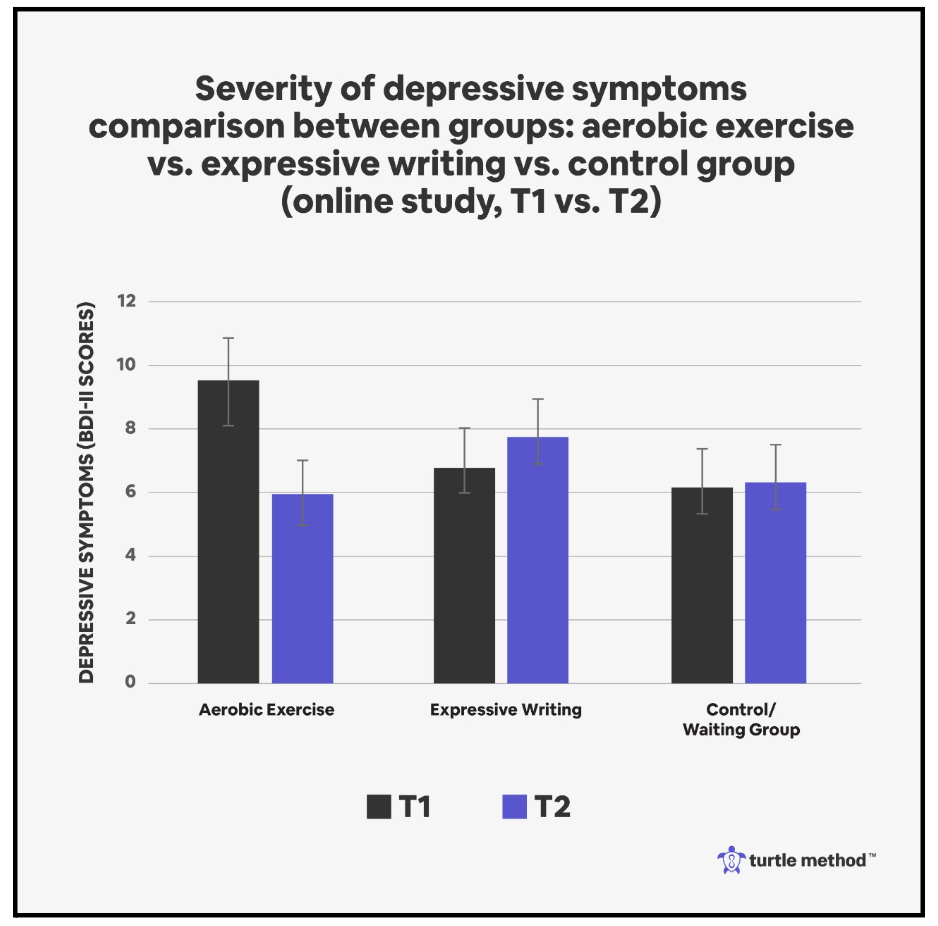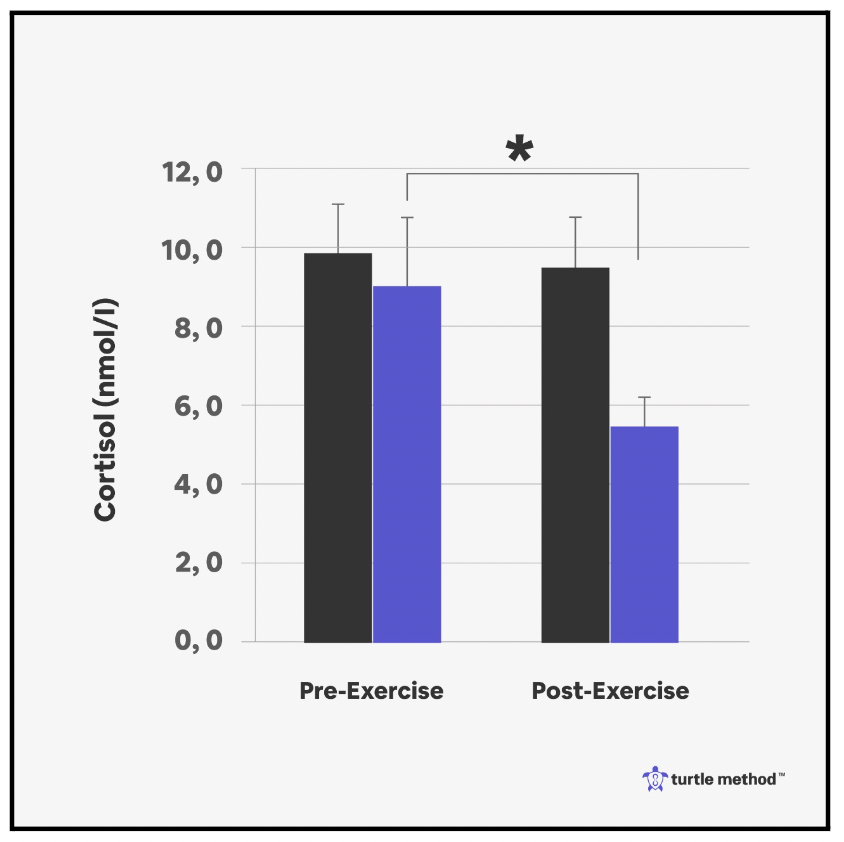Does exercise really improve our mental health?
In short, yes. But here are the details
A 2020 study of 32 subjects who were divided into exercise, expressive writing and control group found that 73.68% in the exercise group demonstrated improvements in depressive symptoms compared to 45.8% in the writing group. PMID: 32528333

A 2015 study on sedentary subjects found that those who completed 30 minutes of moderate-intensity exercise were much more resilient to an acute stressor than those who did not exercise therefore they can handle common stressors. PMID: 25462913
Lower cortisol (stress hormone) levels were also observed after exercise.

The study, published in the journal The Lancet Psychiatry, is where this data comes from. They studied 1.2m people!
So here are 5 key things from this study:
1) All types of exercise were associated with improved mental health!
Do what you like, but the study did say the strongest effects were seen from team sports, cycling, aerobic and gym exercise.
And by exercise they had 75 of them!
“Overall, there were 75 types of exercise recorded and these were grouped into eight categories aerobic and gym exercise, cycling, household, team sports, recreational activity, running and jogging, walking, and winter or water sports.”
2) Even doing little tasks that require movement, like household tasks, improved mental health.
Movement makes us feel better all around!
3) Exercising 3-5x a week was better for mental health than 1x per week (however, those that exercise for 90min + and frequently saw a worsening of their mental health)
“The study authors noted that people doing extreme amounts of exercise might have obsessive characteristics which could place them at greater risk of poor mental health.”
“Study author Dr Adam Chekroud, from Yale University, said: “Exercise is associated with a lower mental health burden across people no matter their age, race, gender, household income and education level.
4) Exercise as step 1 to improve your mental health
“Writing in a linked comment in the same journal, Dr Gary Cooney, from the Gartnavel Royal Hospital, said: “There is gathering interest and momentum around research into exercise as a treatment for mental health disorders.”
“He said: Patients, particularly those reluctant to pursue medication or psychological approaches, are drawn to the self-efficacy of exercise, the ability to attain a degree of agency in their own process of recovery.”
5) It’s not all one-size-fits-all
Depression comes in various depth, and some people simply cannot fathom leaving the house to exercise or to start a program.
This advice is for low to moderate levels of depression and if you are beyond this then seeking 1-1 help and guidance that way is the best path.
However, with mild depression increasing and our activity levels decreasing a simple energy-generating, easy-to-follow exercise plan can do you good.
Next Steps
Step 1: Consistent Exercise 🏃♀️🏋️♀️
Choose an enjoyable activity, such as walking, cycling or simple household tasks. Aim to exercise for around 20 to 30 minutes, three to five times a week. Make this part of your daily routine to promote mental wellbeing.
Step 2: Explore Group Activities or Team Sports ⚽️🚴♀️
Group fitness activities or team sports can provide additional benefits, including social interaction and a sense of community. Look for local classes, join a sports team, or even start a walking group with your friends.
Step 3: Balance is Key 🧘♀️💤
Ensure you’re balancing exercise with adequate rest. It’s important not to over-exert yourself, as too much exercise can negatively impact your mental health. Listen to your body and rest when needed.
Remember: 💌 If you’re experiencing more severe forms of depression, professional help is always recommended.
Exercise is beneficial, but it doesn’t replace tailored advice and treatment from a mental health professional.